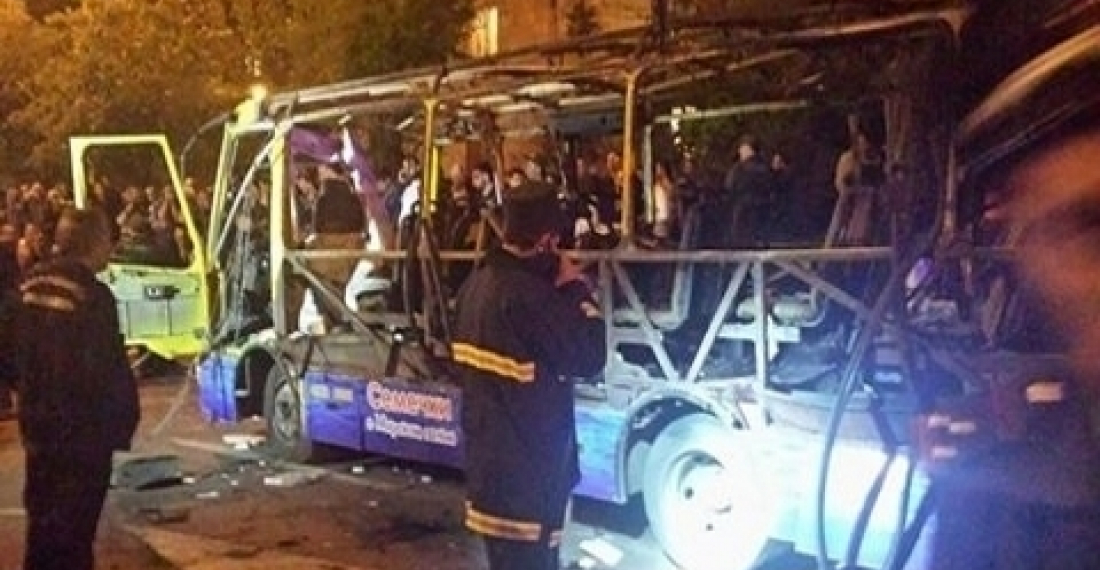An explosion on a Yerevan bus yesterday evening which killed two and wounded several more was not an act of terrorism, according to a preliminary investigation.
A mobile phone card found at the scene belonged to a man who had grievances with relatives, who he planned to harm by using explosives, government official Sona Truzyan told NEWS.am.
The blast took place on Halabyan street in central Yerevan. Shrapnel and debris were scattered over a wide area.
In the immediate aftermath of the explosion, Armenia's police chief said a passenger on board the bus caused the damage, but had no further information as to the motives behind the act.
As well as the phone card, traces of TNT and electrical equipment used to make a detonator were found at the scene by investigators.
The incident comes at a time of heightened tensions between Armenia and its neighbour Azerbaijan, after dozens were killed in four days of fighting between the two countries earlier this month over the disputed province of Nagorno-Karabakh.
SOURCE: commonspace.eu and agencies
PHOTO: Sarkis Balkhian







